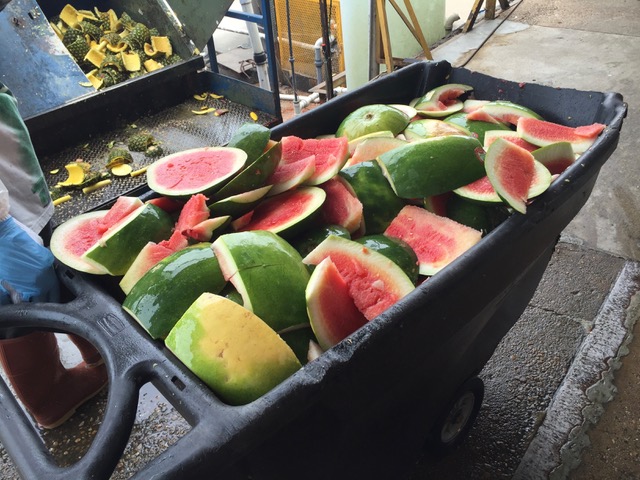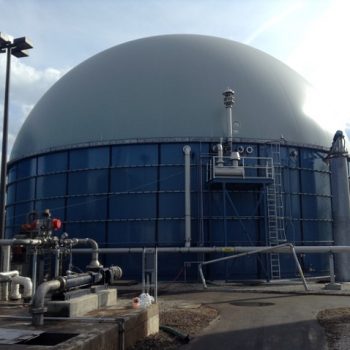News
Waste Not Want Not – A Two Part Look Into Food Waste: Part 1 – The Problem

At iSustain, our mission is to help our clients reduce the amount of waste that they produce and help dispose or recycle what waste is produced in the least impactful way. In today’s blog post, we are going to talk about one of the most environmentally harmful waste products in the world – food waste. According to one recent study, food waste has increased by 50% since 1974, and forty percent of the food that is produced in the United States ends up in a landfill. This works out to roughly 365 million pounds of food wasted every single day. This number has grown consistently due to factors such as liability, supply chain, and quality requirements; however, the bottom line is simple. If we don’t start implementing some major changes in the way we approach food waste, this problem will only become more dire.
What is the Impact of Food Waste in Landfills?

Each piece of produce is inspected. If it does not meet the company standard, it is thrown away even if it is still perfectly good.
With all of this food going to waste every single day, it is inevitable that the majority of it will end up in local landfills. While it might initially seem like this is a non-issue, since waste is supposed to go in a landfill, the effects of such a high amount of decomposing food in a landfill are worrisome. When food waste decomposes in a landfill without the necessary supply of oxygen, an anaerobic sequence is started that produces methane, a gas that is about 20 times more harmful to the atmosphere than carbon dioxide. It is estimated that 34% of all methane emissions in the United States are produced by landfills containing decomposing food.
In addition to producing a massive amount of methane, the abundance of food waste in local landfills is having a negative effect on the health of groundwater reserves. When it rains over a landfill, the water acts as a transporter for toxic chemicals such as ammonia. These chemicals then seep into the groundwater supplies and, in some cases, can even contaminate standing bodies of water such as lakes and rivers.
What Can be Done to Reduce the Amount of Food Waste?

Anaerobic Digester
While there are many different ways that the amount of food waste that is taken to landfills each day can be reduced, a major societal shift is going to have to occur before we see any significant changes. In 2015, the Environmental Protection Agency announced its goal to reduce food waste by 50% by 2030. At iSustain, we have our own plans in place to reduce the amount of food waste that is thrown away. In addition to our comprehensive recycling and waste management services, we have a team dedicated to the efficient recycling and transportation of industrial food waste.
In our experience, food manufacturers have to dispose of millions of tons of packaged and non-packaged food waste every year. Through our services, we proactively help manufacturers and distributors develop custom food waste recycling programs. With an extensive network of recycling partners located all across the country, we are able to recycle large volumes of food waste into reusable or beneficial energy applications. With our process, we guarantee that all food waste is properly destroyed and diverted from being placed into a landfill. We work closely with a variety of programs across the country that share our food waste recycling vision to ensure the best channel for your organic recycling needs are in use. Possible solutions include:
- Animal Feed
- Composting
- Anaerobic Digestion
- Ethanol production
If you would like to learn more about our food waste recycling programs and how they can be a benefit to your business, please leave us a message on our contact page or reach out to us at 423.668.0111.